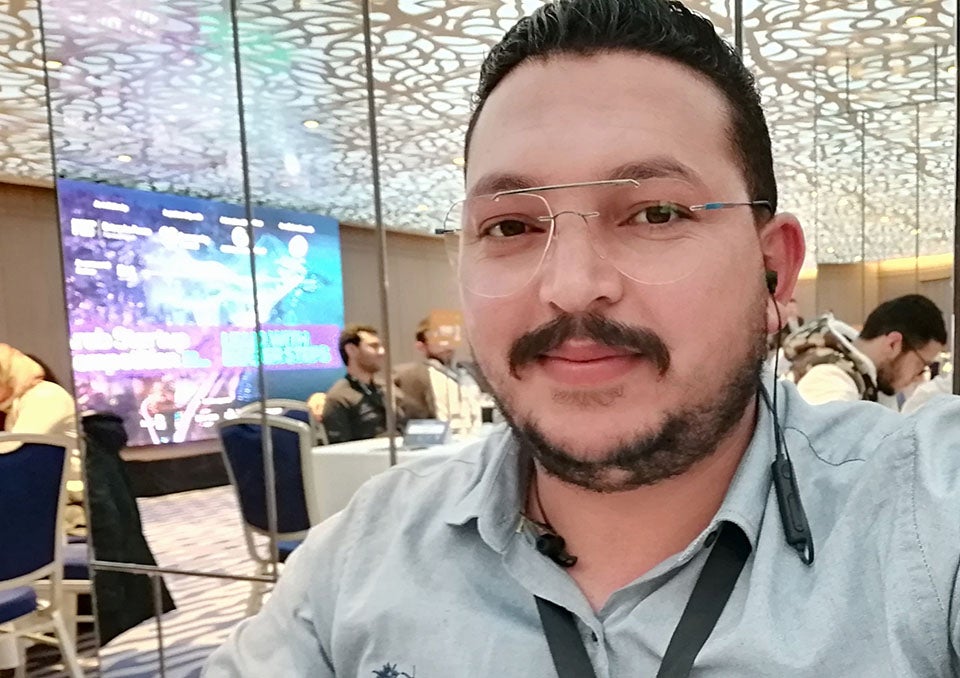Take Five: “The economic participation of rural women is essential for growth and a more equitable distribution of wealth”
Date:

Maher Khalifi, a young Tunisian engineer, has developed a project that improves the coverage of Tunisia’s social protection system for rural women. The Tunisian Government has agreed to use a new application dubbed "Ahmini", which should allow 500,000 rural women to be integrated into social assistance system, allowing them access to benefits such as pensions. He is attending the Tunis Forum on Gender Equality (24 – 26 April), co-hosted by the Governments of Sweden and Tunisia in collaboration with UNDP and UN Women. The Forum is the first of many global meetings leading up to the 25th anniversary of the Beijing Platform for Action.
What are the main challenges facing rural women in Tunisia?
According to the study, Rural Women's Work and Access to Social Protection (2016), the main issues are: the economic and social precariousness of rural women’s work—their working conditions are not being regulated, and 81 per cent report working in arduous conditions. Also, current legislation does not consider the specificities of rural women’s work (seasonal/temporary work, multiple employers, etc.) and only 12 per cent of rural women have social security coverage; plus, the difficulty of accessing services [as they live in] remote areas and lack adequate infrastructure. Ultimately, rural women are not benefitting from social or legal protection against exploitation and it is time we protect them from these dangers.
How will your project Ahmini help?
Our project takes the initiative to help rural women who contribute to production but do not benefit from social security. They are isolated women, without knowledge of, or access to, the social security system. Our goal is also to protect rural women against wage inequality.
The Ahmini platform offers a solution for decentralizing social protection procedures based on a mobile web platform that is connected to the IT infrastructure of social security funds. It allows ambassadors and/or staff to visit rural areas to enrol rural women directly in their community without having to travel miles, losing money and work days. Registration can be done on the ground, with certified document scanning and transmission, with validation through Ahmini by the social security fund concerned. Registration can be done online, with final validation and activation done by social security fund officials.
How can technologies contribute to women’s economic empowerment?
To better understand the contribution of new technology to women’s economic empowerment, we must recognize that mobile phones have become a necessary part of our lives. According to a recent survey, 80 per cent of rural women [In Tunisia] have a phone—which contributes to their personal autonomy. Ahmini facilitates the affiliation and contribution of rural woman and helps them realize their economic autonomy. The social security platform provides and facilitates access to social security coverage and ensures the flexibility of payment of contributions by rural women.
How will this help the economy of Tunisia?
Ahmini will make it easier for Tunisian rural women to access social security coverage to improve their living conditions and empowerment, thereby contributing to the creation of a dynamic, prosperous and sustainable economy. The economic participation of rural women is essential for growth and a more equitable distribution of wealth. Thus, Ahmini is a key element for strengthening the economic empowerment of rural women in Tunisia, and potentially in all developing countries.
How will your participation in the Tunis Forum contribute to your work?
At the Forum, we will define the needs of rural women and present them to those with an opportunity to help and support this group of people who face the same struggles. We will give rural women greater material freedom and dignity through a sustainable platform to ensure their social security coverage.